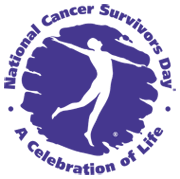A few days ago, I received the devastating news of the loss of Chisom Chukwuneke, a 17 years old gem to blood cancer (leukaemia). A combination of brain and beauty, Chisom left Secondary School with 7 ‘A1’ in the 2019 WASSCE. Because of the gross deficiency in the health system in Nigeria, Chisom’s treatment had to be transferred to South Africa where she eventually died. Shortly before Chisom, I received a distress call from the relative of another young leukaemia patient – an 8 year old girl.
The family was informed that their daughter could access free but qualitative care at the Children’s Cancer Hospital Egypt (CCHE) which is the largest paediatric cancer centre in the world. Alas, the family cannot afford the trip to Egypt!
Indeed, every year, over 100,000 of such disturbing cancer stories occur in our country and it is projected to even get worse, all things being equal. According to WHO, there will be a 60% increase in cancer cases over the next two decades globally and the greatest increase (an estimated 81%) in new cases will occur in developing countries like Nigeria. This disproportionate increase is largely because the health services of the developing countries are not equipped to prevent, diagnose and treat cancers.
The optimal infrastructure needed for cancer treatment is a Comprehensive Cancer Centre (CCC). A CCC is a world-class, stand-alone tertiary health institution, with all its departments focused on cancer care. Whilst India has over 200 CCC, Nigeria has none.
Therefore, Nigerians who can afford it, resort to treatment abroad. This situation results in a colossal drain of Nigeria’s foreign reserve with an estimated one billion USD being spent on foreign treatment annually. Ironically, with this amount, we could establish 20 CCC every year in Nigeria, yet we don’t have one! The recent COVID-related global lockdown has shown that medical tourism may not always be available, even if one can afford it.
The earlier stated projection by WHO implies that our children will be ravaged by the cancer pandemic if we do not take decisive and proactive action to protect them against cancer. We can take inspiration from other countries that have changed the cancer situation for the good of generations yet unborn. The case of Ruth Ginsburg, the second female Justice of the US Supreme Court illustrates how the positive step we take today can transform the future for our children.
Ruth Ginsburg’s mother died from cervical cancer at the age of…
Read more via the link below https://www.lagospostng.com



